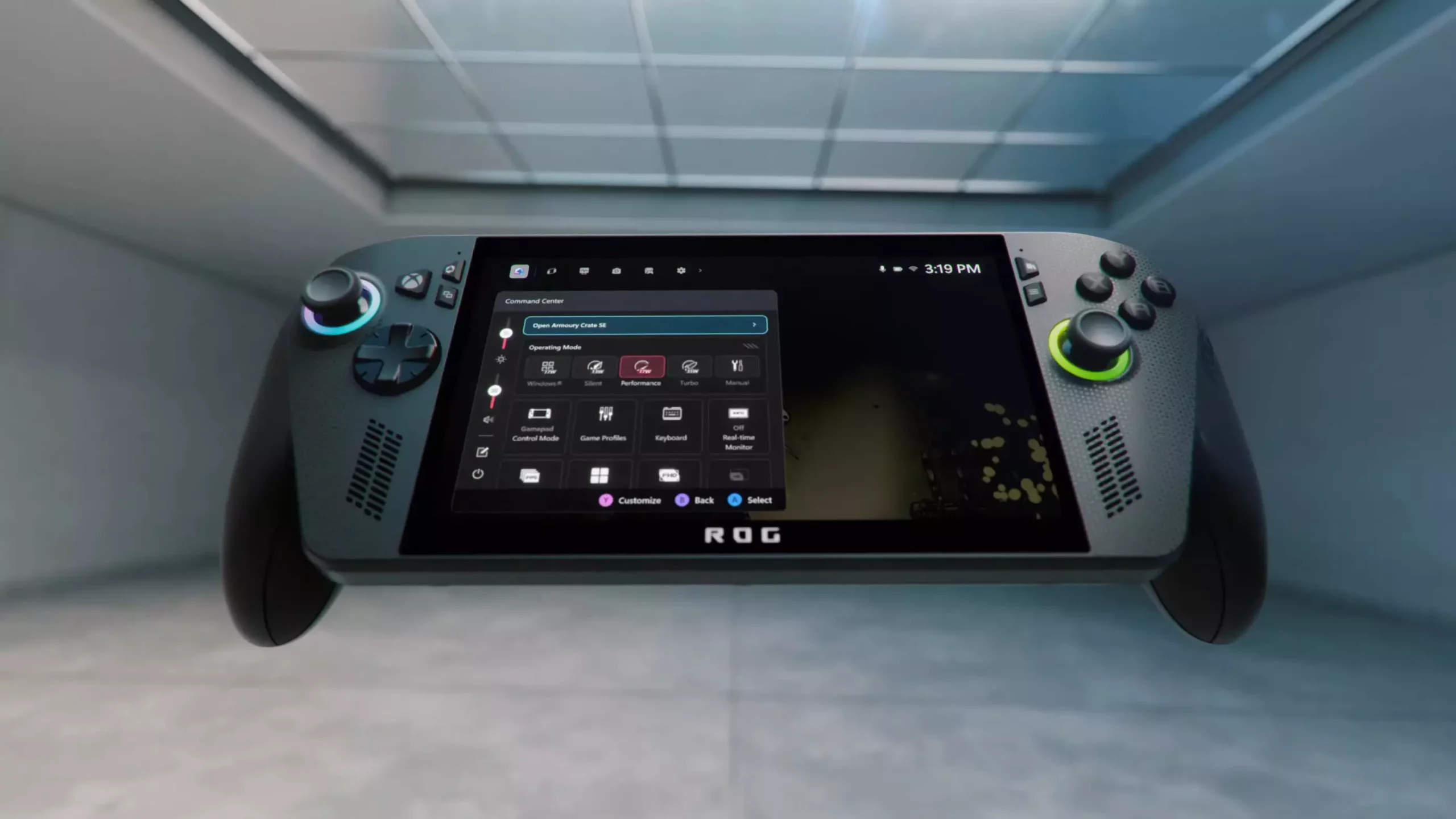Recent news from the Verge has sparked considerable debate among gaming enthusiasts about the fate of the supposedly upcoming Xbox handheld console. The report tantalizingly claims that it is “essentially canceled,” a statement that raises eyebrows when considering that the existence of an Xbox handheld device was only just hinted at. This paradox highlights a fascinating evolution in Microsoft’s strategic vision for gaming that deserves further scrutiny.
The first thing to clarify is the identity of the recently announced Asus ROG Xbox Ally and ROG Xbox Ally X handhelds. These devices may bear the Xbox name, but they are essentially reimagined PCs equipped with standard gaming hardware and a custom-built version of Windows. This revelation illustrates a significant shift; Microsoft isn’t solely focused on producing its own consoles but seems to be moving toward a collaborative model where it partners with third-party manufacturers for its gaming devices. This cooperative strategy extends beyond handhelds, casting a broader shadow over the entire Xbox franchise and how Microsoft intends to evolve it.
The Shift from Hardware to Software
Industry commentators suggest that alongside the cancellation of a traditional Xbox handheld, we’re likely witnessing the dawn of a new era for Microsoft and the Xbox brand. Rather than generating new hardware on its own, Microsoft appears to be laying the groundwork for a diverse ecosystem of gaming devices, all built around a singular vision: maintaining and expanding its Game Pass subscriber base.
By taking this route, Microsoft could streamline its efforts. Imagine a future where each gaming device, whether it’s a handheld, console, or even a smart TV, could run a custom version of Windows designed for an optimal Xbox gaming experience. Such a scenario indicates a shift towards licensing the Xbox branding and Game Pass service to a variety of manufacturers. This enables Microsoft to maintain its foothold in the market without the traditional burden of hardware production.
The Promise of Versatility and Accessibility
The vision of a new generation of Xbox consoles—designed with third-party collaborations in mind—could lead to a democratized gaming landscape. With various manufacturers potentially creating their own unique take on what an Xbox console can be, users may have a wider array of options, each tailored to different performance levels and price points. This fosters inclusivity, bringing gaming to a more extensive demographic and allowing players to find a device that fits into their financial and entertainment needs.
Additionally, the advances in streaming and emulation technologies mean that legacy Xbox games could easily be made available across these various platforms. Players wouldn’t necessarily need to invest in traditional Xbox hardware to access their favorite titles; instead, they could play them on enhanced PC systems or even lower-end devices, all while benefiting from the Xbox UI experience.
The Road Ahead: Gaming’s Transformational Journey
The emerging narrative suggests that Microsoft is not merely adapting to present conditions; it’s looking beyond the horizon, ready to redefine what gaming can be. Tom Warren’s insights point towards a landscape where Microsoft controls not just the software ecosystem but also the gaming experience itself, regardless of the hardware being used. The potential for cross-device compatibility is immense, leading to a unified and refined gaming experience.
The recent branding changes noted during the Xbox Games Showcase—where Microsoft has acknowledged Steam as a competitor and referred to its offerings as “Xbox PC”—further emphasize this shift in strategy. It’s more than a rebranding; it is a call to envision a gaming environment where Microsoft’s platform is accessible across various devices, blurring the lines between console gaming, PC gaming, and dedicated handhelds.
While the cancelation of an Xbox handheld may seem like a setback, in the long run, it’s indicative of Microsoft’s keen ability to adapt and innovate instead of relying on outdated models. The gaming community’s eyes should be set on this transformative journey and the possibilities that it holds, as the future of Xbox looks to be less about singular devices and more about an expansive approach to gaming experiences.

